Children’s book shares triumph and tragedy of 1936 Akron spelling champ MacNolia Cox
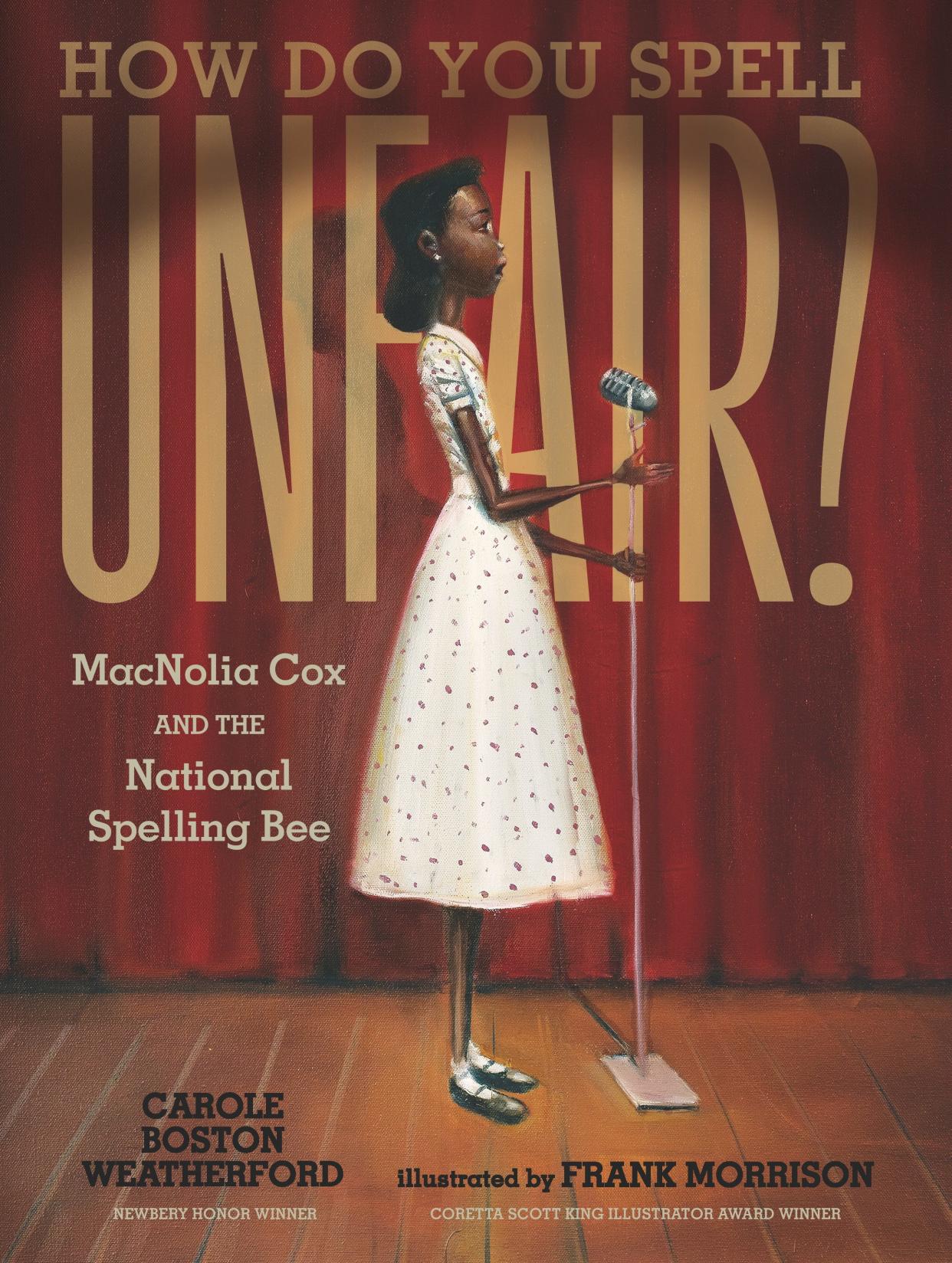
- Oops!Something went wrong.Please try again later.
Akron spelling champion MacNolia Cox has returned to the national stage as the subject of a new children’s book.
New York Times bestselling author Carole Boston Weatherford of Baltimore and award-winning illustrator Frank Morrison of Atlanta have teamed up to tell MacNolia’s story in “How Do You Spell Unfair?” from Candlewick Press.
As a 13-year-old in 1936, MacNolia became the first African American to win the Akron bee and the first to compete at the National Spelling Bee in Washington, D.C.
Triumph turned to heartbreak as the shy, quiet girl encountered racism on the trip. Under challenging circumstances, she battled her way to the finals, where she finished fifth under a cloud of controversy.
“I thought it was an important story to share for young people,” Weatherford said in a phone call from Maryland.
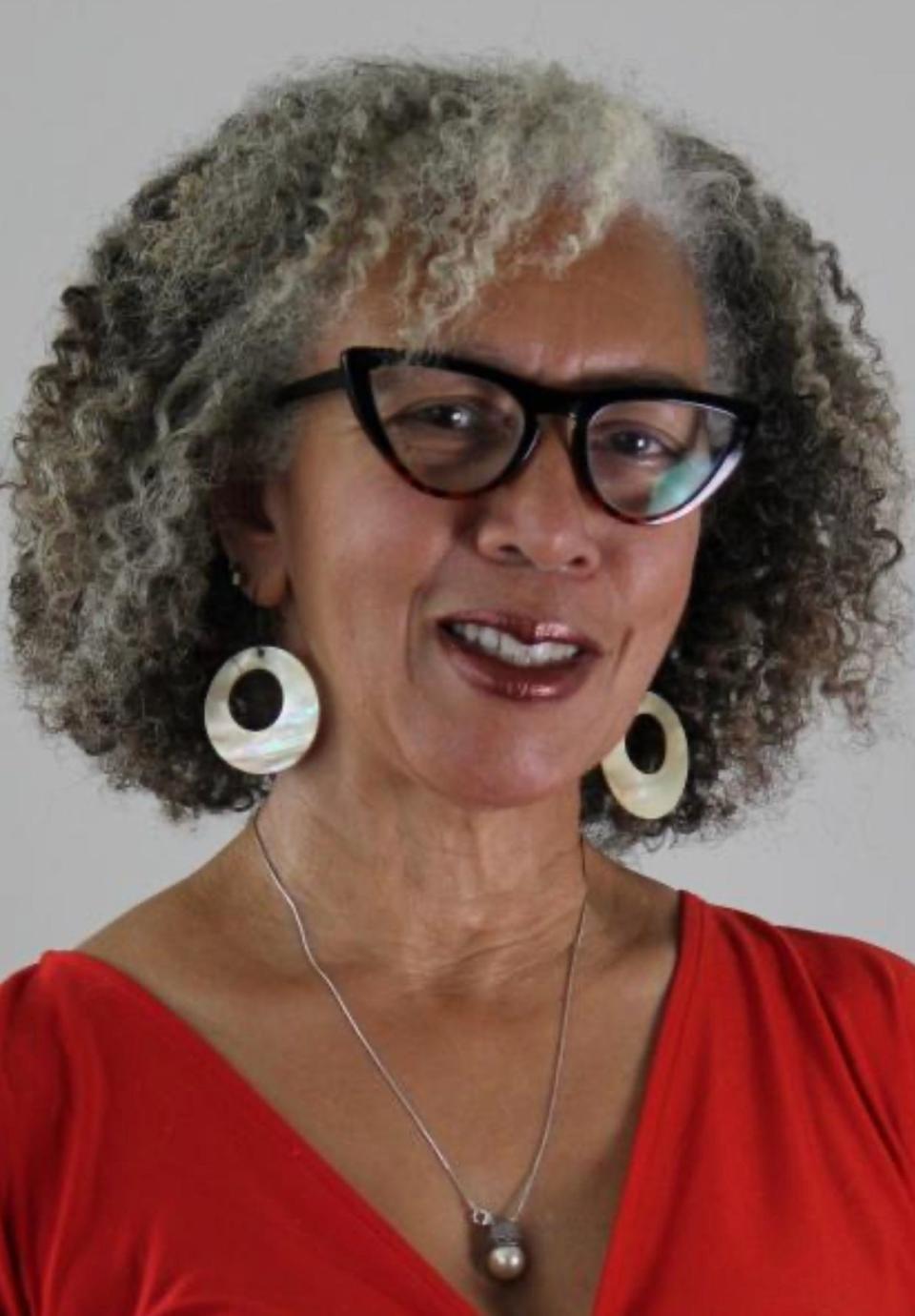
The author of more than 40 books including works on Lena Horne, Leontyne Price, Aretha Franklin, Oprah Winfrey and Michelle Obama, Weatherford has a special interest in “real people whose lives just happened to take them through the segregation era and the civil rights movement.”
Weatherford first learned about Ohio’s spelling champion through Akron native A. Van Jordan’s “M-A-C-N-O-L-I-A,” an award-winning collection of poems published by W.W. Norton & Co. in 2005.
“It’s a beautiful, beautiful, beautiful book. I love it,” she said.
About four years ago, Weatherford recalled MacNolia’s story and wondered if it could be a children’s book. She began her research from scratch, including reading the original 1930s articles.
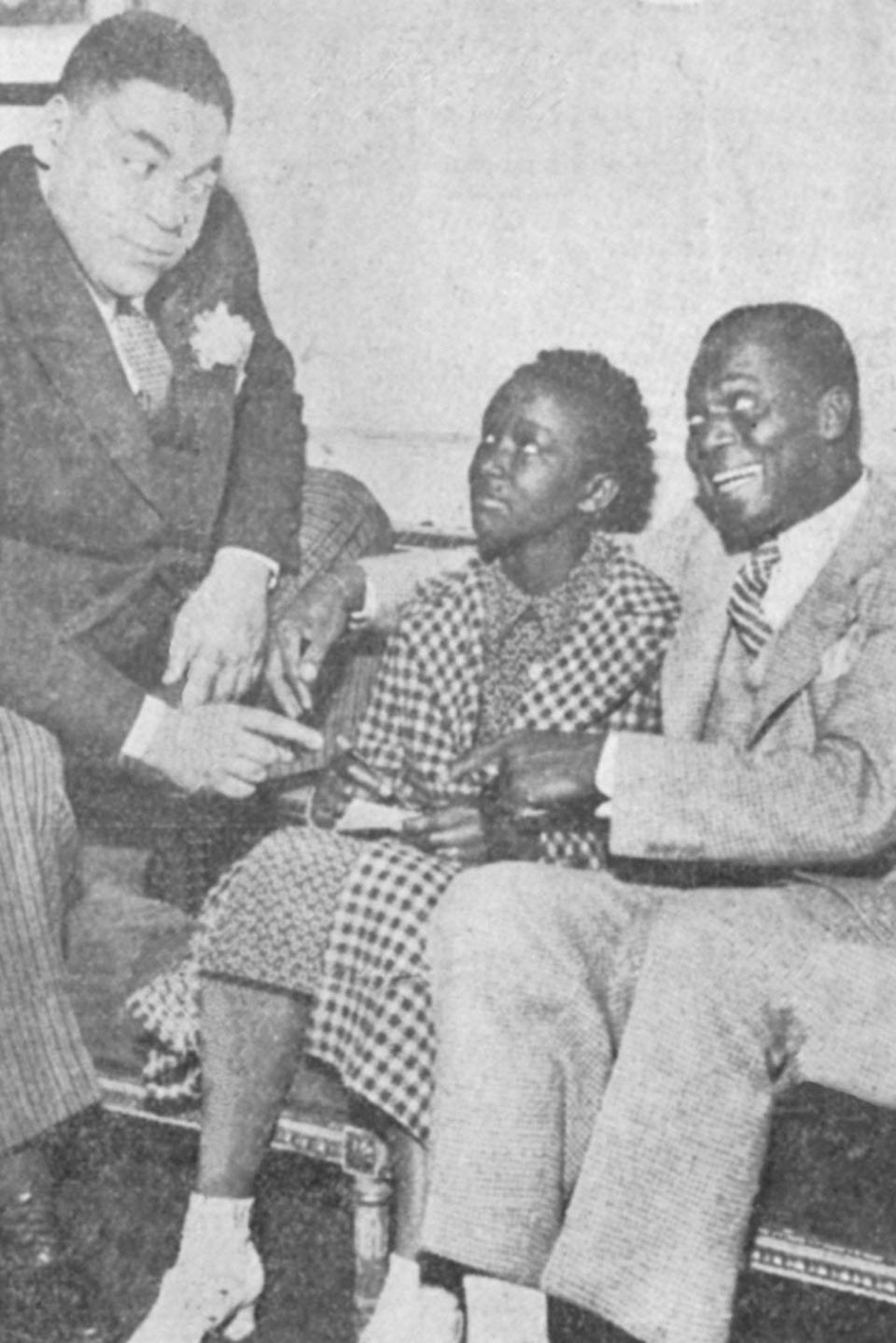
In the book, Weatherford chronicles how MacNolia liked to read the dictionary for fun, how she won the Akron Beacon Journal spelling bee before a crowd of 3,000, how she met composer Fats Waller and dancer Bill “Bojangles” Robinson and how she garnered comparisons to Olympic champion Jesse Owens and heavyweight boxer Joe Louis.
“Can you spell famous? F-A-M-O-U-S,” Weatherford writes in the book.
“Can you spell dedication? D-E-D-I-C-A-T-I-O-N,” she notes elsewhere.
“The concept came to me fairly quickly in terms of the spelled-out words,” Weatherford explained.
MacNolia Cox at the spelling bee
MacNolia was an eighth grader at Colonial School in Kenmore. Her journey south was an eye-opening experience.
She and her mother, Alberta, traveled by train to the national bee, but they had to move to a Black-only car when they reached Maryland. In segregated Washington, they couldn’t stay in a hotel with white spellers, so they found lodging with an African American doctor.
When MacNolia and her mom arrived at the spelling bee banquet, they had to climb a back stairwell instead of using the main elevator. Inside the dining hall, they were seated at a table by themselves.
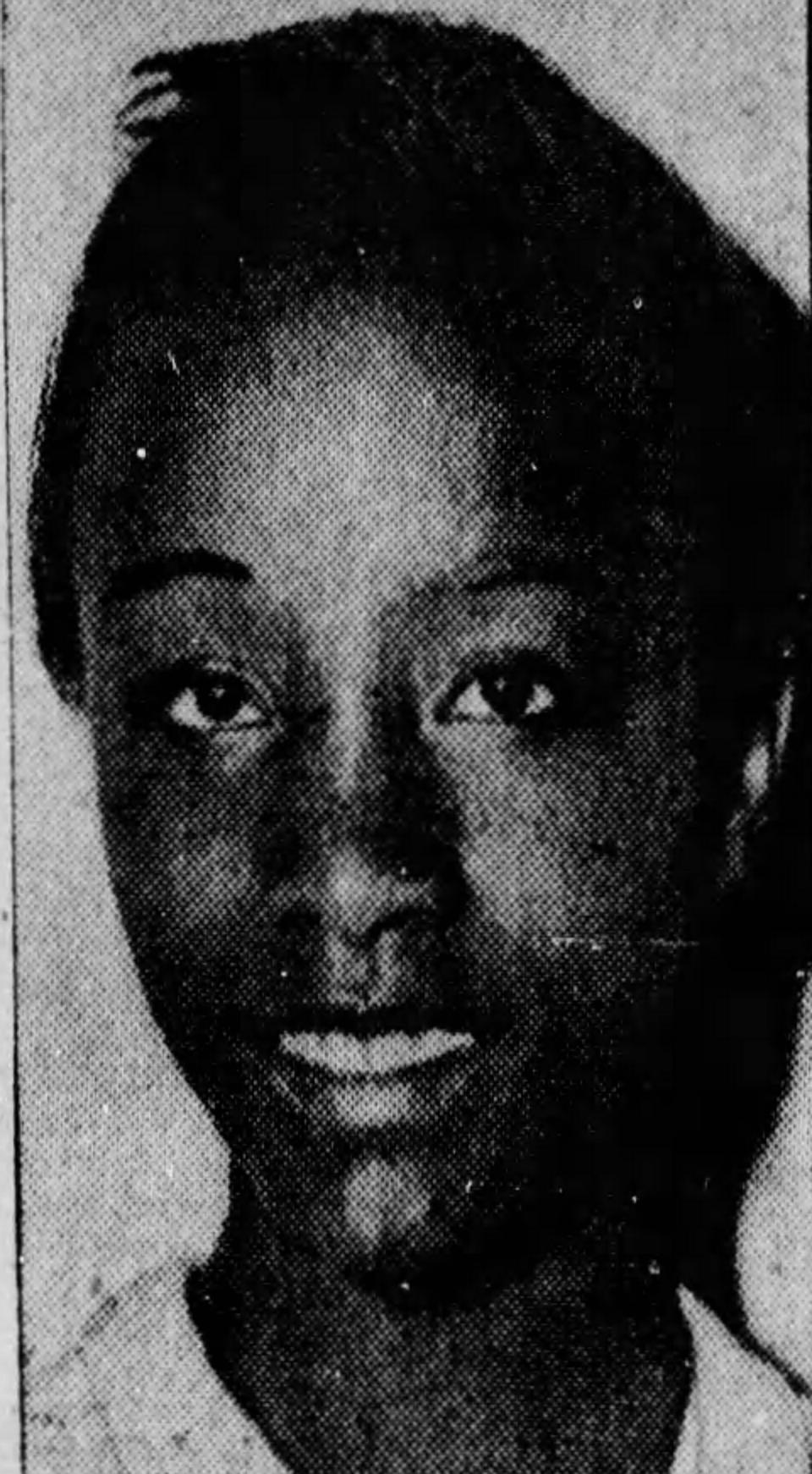
Despite many distractions, MacNolia excelled in the spelling competition, surviving round after round to become the first Black finalist at the national bee. Then the judges, mostly white Southerners, gave her a word that wasn’t on the approved list.
The Akron youngster had memorized 100,000 words, but “Nemesis” wasn’t one of them. The Greek goddess of vengeance was a proper noun in MacNolia’s dictionary, and capitalized words weren’t allowed in the contest.
She gave it her best guess, but fell short with “Nemasis.” The judges ruled her out despite the objections of Akron Beacon Journal reporter Mabel Norris.
“I think that will resonate with young people because they recognize the spelling bee as a place, a forum, where there is supposed to be a level playing field,” Weatherford said.
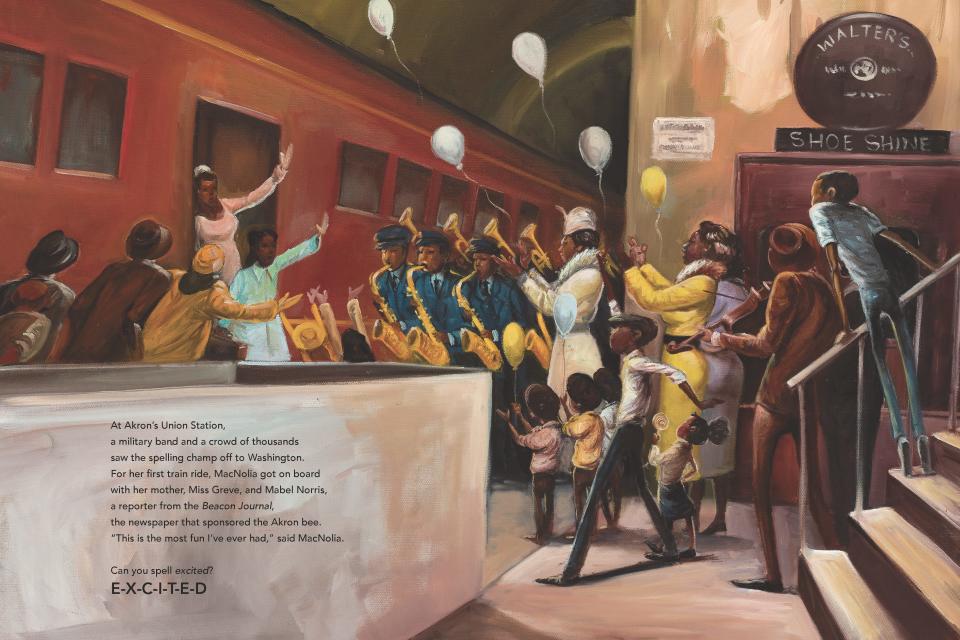
When MacNolia returned home, she received a hero’s welcome, including a parade from Union Depot through downtown Akron to Colonial School. She smiled and waved to the crowd.
MacNolia wasn’t able to afford college after high school. She got married, had a son and ended up working as a domestic employee of an Akron physician.
When MacNolia Cox Montiere, 53, died of cancer on Sept. 12, 1976, her obituary proudly mentioned the 1936 spelling bee victory.
Readers may raise questions
“One thing I want to show when I write books like ‘How Do You Spell Unfair?’ about a young person who is facing discrimination is that young people had to bear a lot of the burden of systemic racism,” Weatherford said. “Had to and still are — in many different forms from wealth inequality that just persists and persists and persists to the actual in-your-face, you-know-it’s racism.”
Young readers are sophisticated enough to discern what’s going on in the story, draw their own conclusions and ask questions, she said.
“We’re not always ready for the questions that our kids raise,” Weatherford said. “You’ll feel like you’re backed in a corner sometimes when your kids start asking questions. But we want them to ask questions because that’s part of learning and that’s part of life.”
Weatherford is thankful to have collaborated again with artist Frank Morrison, whose evocative, oil-and-spray-paint illustrations create a poignant atmosphere throughout the book.
“I love Frank’s work and I actually requested that he be on this project,” she said. “I think we work well together.”
This is their fifth collaboration. Two of their books, “Standing in the Need of Prayer” (2022) and “R-E-S-P-E-C-T: Aretha Franklin, the Queen of Soul” (2020) won Coretta Scott King Awards for illustration.
“We’re both really over the moon about that,” she said.
Suggested for ages 7 to 10, “How Do You Spell Unfair?” is a 40-page hardcover book that retails for $18.99 from Candlewick Press. Look for it at local bookstores or online retailers such as amazon.com and barnesandnoble.com.
“MacNolia Cox showed how exceptionalism can sometimes transcend racism, but never completely,” Weatherford said.
Ultimately, she hopes children will take away a positive message when they read the book: “If they apply themselves, they too can excel at whatever the endeavor is.”
Mark J. Price can be reached at mprice@thebeaconjournal.com
Local history: 101 trailblazers who achieved famous firsts in Akron Black history
Local history: Forgotten civil rights speeches from Akron’s past
This article originally appeared on Akron Beacon Journal: 1936 Akron speller MacNolia Cox is subject of new book for children

